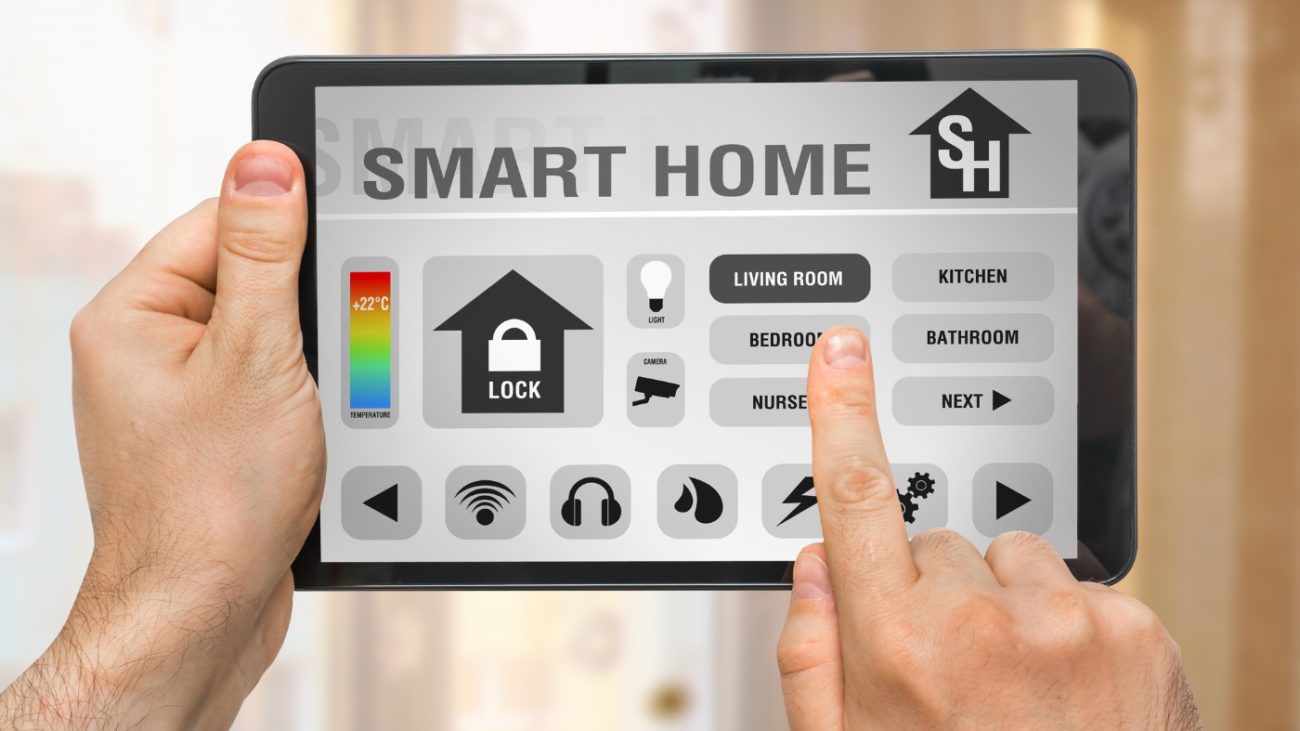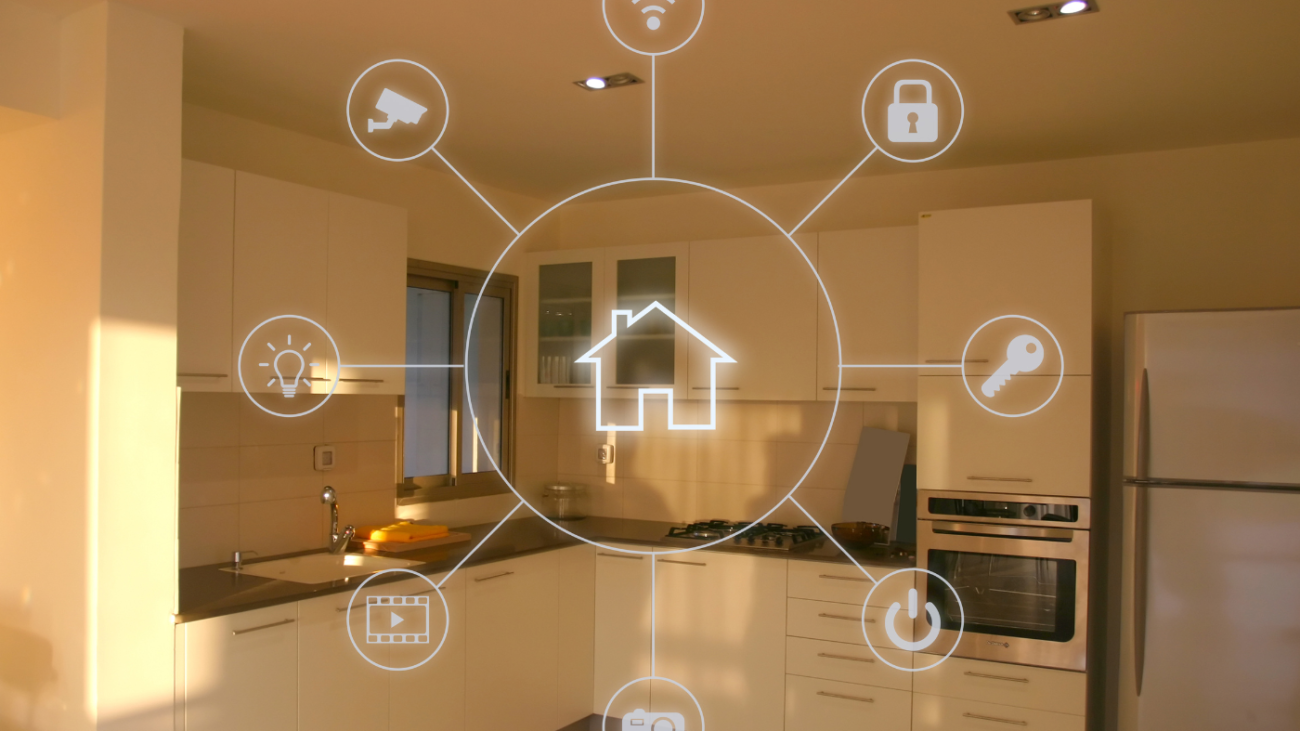With rising energy costs and increasing environmental concerns, homeowners are looking for effective ways to save energy and reduce expenses. Smart home technology offers an innovative solution by automating and optimizing energy usage. From smart thermostats to intelligent lighting systems, these devices help improve efficiency and lower utility bills. In this guide, we will explore the best smart home devices that can help you save energy and reduce costs.
1. Smart Thermostats: Optimize Heating and Cooling
Why Smart Thermostats Matter
Heating and cooling account for a significant portion of energy consumption in homes. A smart thermostat helps manage temperature settings more efficiently, reducing waste and optimizing comfort.
Top Smart Thermostats
Google Nest Learning Thermostat – Learns your schedule and adjusts temperature settings accordingly.
Ecobee Smart Thermostat with Voice Control – Comes with room sensors to optimize heating and cooling based on occupancy.
Honeywell Home T9 Smart Thermostat – Offers remote access and energy-saving scheduling features.
Energy-Saving Benefits
- Automatically adjusts temperature based on occupancy.
- Allows remote control via smartphone apps.
- Provides energy usage reports and suggestions for optimization.
2. Smart Lighting Systems: Efficient and Convenient
Why Smart Lighting is Essential
Traditional lighting can lead to unnecessary energy waste. Smart lighting systems offer automation, dimming options, and remote access, making them an excellent choice for reducing power consumption.
Top Smart Lighting Solutions
- Philips Hue Smart Bulbs – Customizable lighting with dimming and color options.
- LIFX LED Smart Bulbs – Energy-efficient LED bulbs with Wi-Fi connectivity.
- TP-Link Kasa Smart Light Switches – Allows control of regular bulbs with smart scheduling.
Energy-Saving Benefits
- Automates lights to turn off when not needed.
- Dimming capabilities reduce energy consumption.
- Remote control and scheduling prevent unnecessary usage.
3. Smart Power Strips: Reduce Phantom Energy Consumption
Why Smart Power Strips Are Useful
Even when turned off, electronic devices continue to consume energy, known as “phantom load” or “vampire power.” Smart power strips help eliminate this unnecessary drain.
Top Smart Power Strips
- TP-Link Kasa Smart Wi-Fi Power Strip – Allows remote control of multiple devices.
- APC Smart Plug Power Strip – Offers surge protection and energy monitoring.
- Belkin Conserve Smart Power Strip – Automatically cuts power to idle devices.
Energy-Saving Benefits
- Turns off electronics when not in use.
- Prevents standby power wastage.
- Reduces overall electricity consumption.
4. Smart Plugs: Control Energy Use Remotely
Why Smart Plugs Are a Game-Changer
Smart plugs convert regular appliances into energy-efficient devices by allowing remote control and scheduling features.
Top Smart Plugs
- Amazon Smart Plug – Works seamlessly with Alexa for voice control.
- Wemo Mini Smart Plug – Compact design with scheduling and automation features.
- Gosund Smart Plug – Budget-friendly option with app integration.
Energy-Saving Benefits
- Enables remote control of appliances.
- Automates turning off devices when not in use.
- Tracks energy consumption in real-time.
5. Smart Water Heaters: Efficient Hot Water Usage
Why Smart Water Heaters Are Beneficial
Traditional water heaters operate continuously, leading to excessive energy use. Smart water heaters optimize heating schedules based on demand.
Top Smart Water Heaters
- Rheem Performance Platinum Smart Electric Water Heater – Wi-Fi enabled with energy-saving features.
- EcoSmart Tankless Water Heater – Provides hot water on demand, reducing standby energy losses.
- Bosch Tronic 3000 T Electric Mini-Tank Water Heater – Compact and energy-efficient.
Energy-Saving Benefits
- Only heats water when needed.
- Reduces standby power loss.
- Allows remote temperature adjustments.
6. Smart Energy Monitors: Track and Optimize Usage
Why Energy Monitors Are Important
Understanding your home’s energy consumption patterns is crucial for reducing waste. Smart energy monitors provide insights into energy usage and offer tips to improve efficiency.
Top Smart Energy Monitors
- Sense Energy Monitor – Tracks electricity usage in real-time.
- Emporia Vue Smart Home Energy Monitor – Provides detailed appliance-level monitoring.
- Efergy Engage Hub Kit – Wireless monitoring for better energy management.
Energy-Saving Benefits
- Identifies high-energy-consuming appliances.
- Provides actionable insights for reducing usage.
- Helps track savings over time.
7. Smart Window Shades: Reduce Heating and Cooling Costs
Why Smart Window Shades Are Effective
Windows contribute to heat gain in summer and heat loss in winter. Smart shades adjust automatically based on sunlight and temperature.
Top Smart Window Shades
- Lutron Serena Smart Shades – Customizable and compatible with smart home systems.
- Yoolax Motorized Smart Blinds – Budget-friendly automated blinds.
- Soma Smart Shades 2 – Solar-powered and app-controlled.
Energy-Saving Benefits
- Blocks excessive heat during summer.
- Retains warmth during winter.
- Reduces reliance on heating and cooling systems.
8. Smart Refrigerators: Optimize Energy Use
Why Smart Refrigerators Matter
Refrigerators run 24/7, making them one of the biggest energy consumers in a home. Smart refrigerators optimize cooling efficiency and reduce power usage.
Top Smart Refrigerators
- Samsung Family Hub Refrigerator – Energy-efficient with built-in touchscreen and cameras.
- LG InstaView Door-in-Door Refrigerator – Helps reduce cold air loss.
- Whirlpool Smart French Door Refrigerator – Wi-Fi-enabled with temperature monitoring.
Energy-Saving Benefits
- Maintains optimal cooling with minimal energy.
- Provides alerts for maintenance and door left open.
- Allows remote monitoring of temperature settings.
9. Smart Irrigation Systems: Save Water and Energy
Why Smart Irrigation Matters
Traditional irrigation systems waste a lot of water and energy. Smart irrigation systems adjust watering schedules based on weather conditions.
Top Smart Irrigation Systems
- Rachio 3 Smart Sprinkler Controller – Uses weather data to optimize watering.
- Orbit B-hyve Smart Hose Faucet Timer – Ideal for small gardens.
- RainMachine Pro-8 Smart Irrigation Controller – Offers remote control via mobile app.
Energy-Saving Benefits
- Prevents overwatering and reduces water waste.
- Adjusts watering schedules based on real-time weather data.
- Saves electricity by optimizing pump operations.
Conclusion
Investing in smart home devices can significantly reduce energy consumption and lower utility bills. From smart thermostats and lighting to energy monitors and irrigation systems, these devices optimize usage while providing convenience. By integrating these energy-saving technologies, homeowners can enjoy a more efficient and cost-effective living environment.
Are you ready to make your home smarter and more energy-efficient? Start with one or more of these devices and take control of your energy expenses today!

